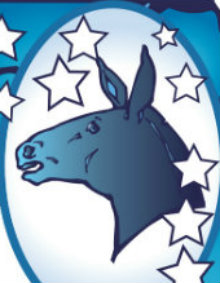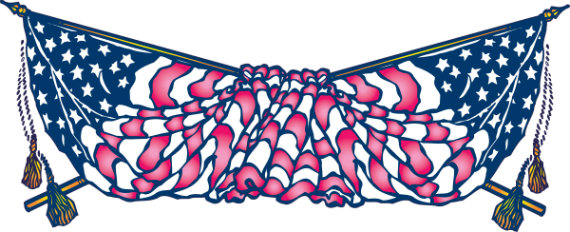Media Literacy: The POTUS Primary Debates
Media literacy education consultant Frank Baker returns with another in his continuing series of idea-rich articles on media and visual literacy, offering educators ideas for engaging students in critical thinking about images and issues from the news and popular culture. Televised debates can jump start media literacy learning now or come in handy later in the year.

Like it or not, the race for the White House is underway. Candidates are on the stump, and some have even aired commercials in several key battleground states. A long series of GOP debates is now scheduled, the first of which is August 3.
Much of the current news is about who will appear on the debate stages and who will not and the ramifications of those decisions. (One of the Republican debate organizers, writing in the Wall Street Journal recently, sought to explain the process: monthly debates with dates announced early to allow candidates travel flexibility; conservative media included to reflect sponsoring organizations; locations in a variety of states; a limit of 10 candidates given stage sizes; and candidate participation frequently determined by the media networks.)

Taking the Debates to Class
As many students return to school in August, now might be a good time to consider using the debates as another teachable moment in your classroom.
Here is the upcoming schedule of Republican debates, locations and broadcast sponsors:
| Date | Event Type | Location | Sponsors/Broadcasters |
| August 3 | Republican Forum | St. Anselm’s College in Manchester, New Hampshire | C-SPAN/ New Hampshire Union Leader/iHeartRadio/Cedar Rapids Iowa Gazette/ Post and Courier/KRGG-TV/WLTX-TV |
| August 6 | Republican Debate | Quicken Loans Arena in Cleveland, Ohio | Fox News/Facebook/ Ohio Republican Party |
| September 16 | Republican Debate | Reagan Library in Simi Valley, California | CNN/Salem Radio/Reagan Library Foundation |
| October 28 | Republican Debate | Coors Event Center, The University of Colorado Boulder in Boulder, Colorado | CNBC/The University of Colorado Boulder |
| November TBA | Republican Debate | Wisconsin | Fox Business/Wall St Journal |
| December 15 | Republican Debate | Las Vegas, NV | CNN/Salem Radio |
| January TBA 2016 | Republican Debate | Iowa | Fox News |
| February 6 | Republican Debate | St. Anselm College in Manchester, New Hampshire | ABC News/ IJReview.com |
| February 13 | Republican Debate | South Carolina | CBS News |
| February 26 | Republican Debate | Houston Tx | NBC/Telemundo/National Review |
| March TBA | Republican Debate | TBD | Fox News |
| March 10 | Republican Debate | Florida | CNN/Salem Radio |
Plans for Democratic primary debates are tentative. 2016 Election Central outlines what is known as of late July, 2015.
Advice for Teaching With and About Debates
Students should be aware that many debates are formed around themes. For example, the November Republican debate in Wisconsin will center around economic issues. With that in mind, students might research the candidates’ positions on domestic and international issues that will be covered on the debating schedule. Since both Fox News and the Wall Street Journal (both conservative news sources) are the co-sponsors of the Wisconsin debate, students may wish to follow both media organizations in the weeks prior to the debate.
Fact-checking

A Debate Checklist
Consider using the following checklist with students. It is designed to get them thinking beyond superficial viewing.
Setting: Examples of how colors, camera positions, view framing (e.g., close-ups, side view, other angles) favor or hurt the candidates.
Techniques of Persuasion: Examples of candidates’ use of glittering generalities, name-calling, emotional appeals, avoidance, etc. Did these examples help or hurt the candidates?
Favorite Phrases: Examples of candidates’ use of slogans and buzz words and phrases. Were they used effectively or not?
Rehearsed Responses: Examples of candidates’ use of prepared phrases or retorts (sometimes described as “talking points”) that are meant to seem spontaneous. Were they used effectively or not?
CUTAWAYS: Examples of non-verbal expressions, gesturing, audience reactions seen during debate. Did these images, selected by media producers/directors, help or hurt the candidates?
POST DEBATE ANALYSIS: Students might look for cliches use by commentators, pundits, panelists and others. Example: references to horse racing (out of the starting gate, front-runner, packed field). Did commentators clearly favor a candidate? Were their views balanced by the presence of other commentators? Examples of challenges to factual accuracy of candidates’ claims. Were candidates’ statements supported by facts?
After the Debate
► How did the news media (and social media) report or react to the debate? The morning after is a great time to have students comb various news sources to see how the debate “played” according to the writer. Reviewing Twitter hashtags like #election2016, #GOP, #primaries, and tags popular for specific debates are a quick way for students to gather data for analysis.
► Ask students if they noticed if one candidate was on camera longer than another? Could this be a sort of bias?
► Did one candidate say something outrageous that made the headlines or was designed to get another candidate to react emotionally? Did any candidates get “cornered” in the debate and cause political analysts to lessen their chances in the primaries?
For more resources and teaching ideas about helping students understand the role of the media in elections, see my website, or read my book Political Campaigns and Political Advertisements: A Media Literacy Guide.
Frank W. Baker is a media literacy education consultant and the author of three books, including Media Literacy in the K-12 Classroom (ISTE, 2012). He contributed two chapters to Mastering Media Literacy (Solution Tree, 2014). He is a recipient of the National Telemedia Council‘s annual Jessie McCanse Award given for individual contributions to the field of media literacy over at least 10 years. Follow him on Twitter @fbaker and visit his resource-rich website Media Literacy Clearinghouse.


































